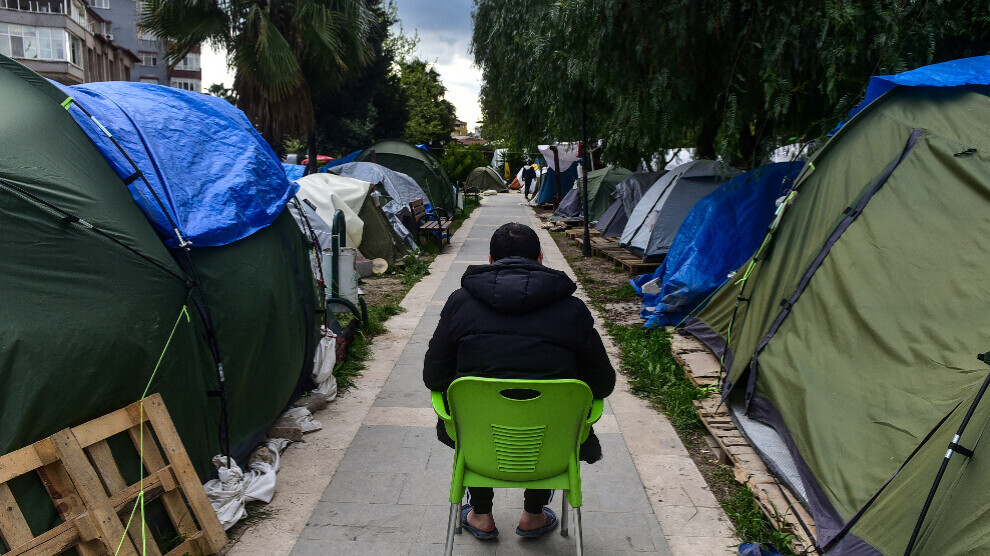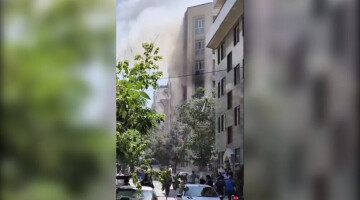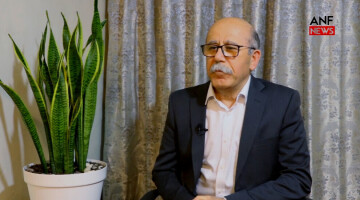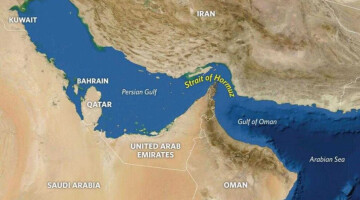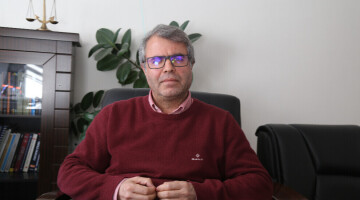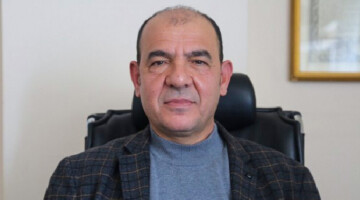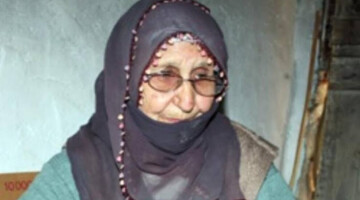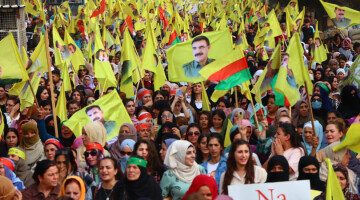In Turkey, refugees are made scapegoats at every opportunity. Both the government and the opposition threaten them with deportation to their countries of origin with far-right propaganda in election promises. Even in the event of a major disaster like an earthquake, they are systematically discriminated against. To travel within the country to another province, they have needed a permit from the Directorate of Migration Management of the Ministry of Interior since 2017. To leave the earthquake-affected region, they rely on a 60-day permit.
Mehmet Shehyar from Aleppo is both a migrant and an earthquake victim and spoke to ANF about his situation. The Syrian man is a women's clothing designer and came to Turkey to work back in 2009, before the war in Syria. He says he received a work permit and worked in a textile workshop in Istanbul and had no problems. After the war broke out in Syria in 2011, he had to bring his family from Aleppo to Turkey. His children were sent to school in Hatay. As he tells it, his life was turned upside down in 2017 when the Directorate of Migration Management of the Ministry of Interior decided that Syrians who wanted to travel from one province to another needed a travel permit: "To travel from one province to another, you have to apply for a permit at the Migration Management Directorate. And even then, the permit is only granted for 15 days. I could only go to Istanbul if I had permission from the Immigration Department in Hatay, where I am registered. That applied even for medical treatment."
This 2017 measure curtailed the right to freedom of movement and was exacerbated by another decision of the Directorate of Migration Management after the earthquake, Shehyar said and continued: "I was in Istanbul during the earthquake. Luckily, nothing happened to my wife and children in Antakya, but the house we were staying in was badly damaged. As soon as I heard about it, I returned to Antakya. After the earthquake, the migration authority ordered another special measure for Syrians. Since we had nowhere to stay, I asked for permission to go to my mother in Afyon. However, we could only stay there for 30 days because there was no work and no money. My damaged house and all my belongings are here. I had to come back to Antakya with my family, but now I can't go to Istanbul because I can't get permission. My hands are tied."
Shehyar is staying with his family in a tent at one of the solidarity and aid distribution points set up by political parties in Hatay. He accused the Turkish government of discriminatory practices against Syrians. "I was born Syrian, what is my crime?" asked Şehyar and added: "I am a designer of women's clothes. I draw models, make patterns and design them. Everything here is destroyed, there is no work. I have to go to Istanbul to work, but I am not allowed to. We are homeless. How long are we supposed to live in a tent? Children don't have school anymore either. We need a container at least, and I hope there will be no discrimination again. I don't know what to do. I am both a migrant and an earthquake victim. My family has been affected by a war and an earthquake. The earthquake is worse than the war. As Syrians, don't we have the right to life? Is that what we should understand by this practice? I want this discriminatory practice to be lifted."

